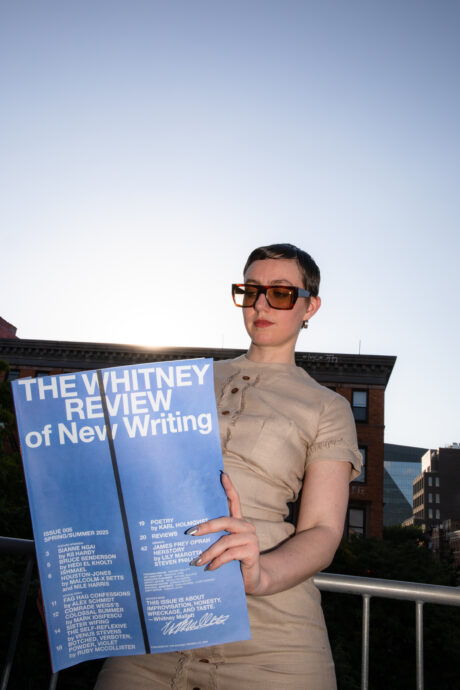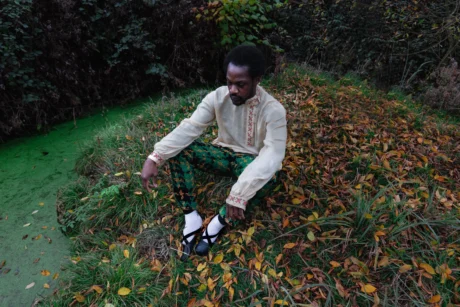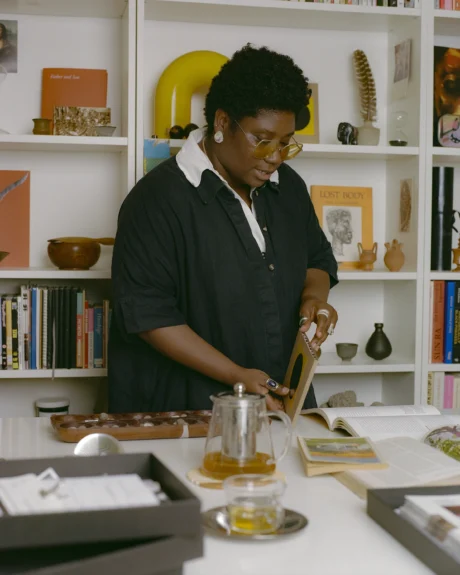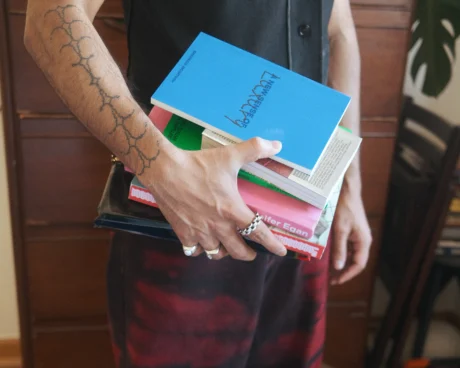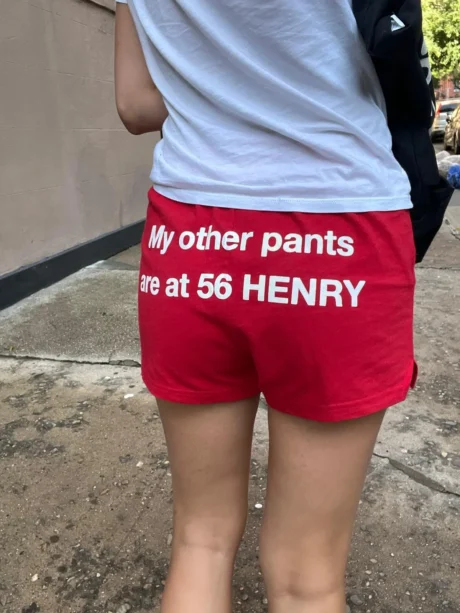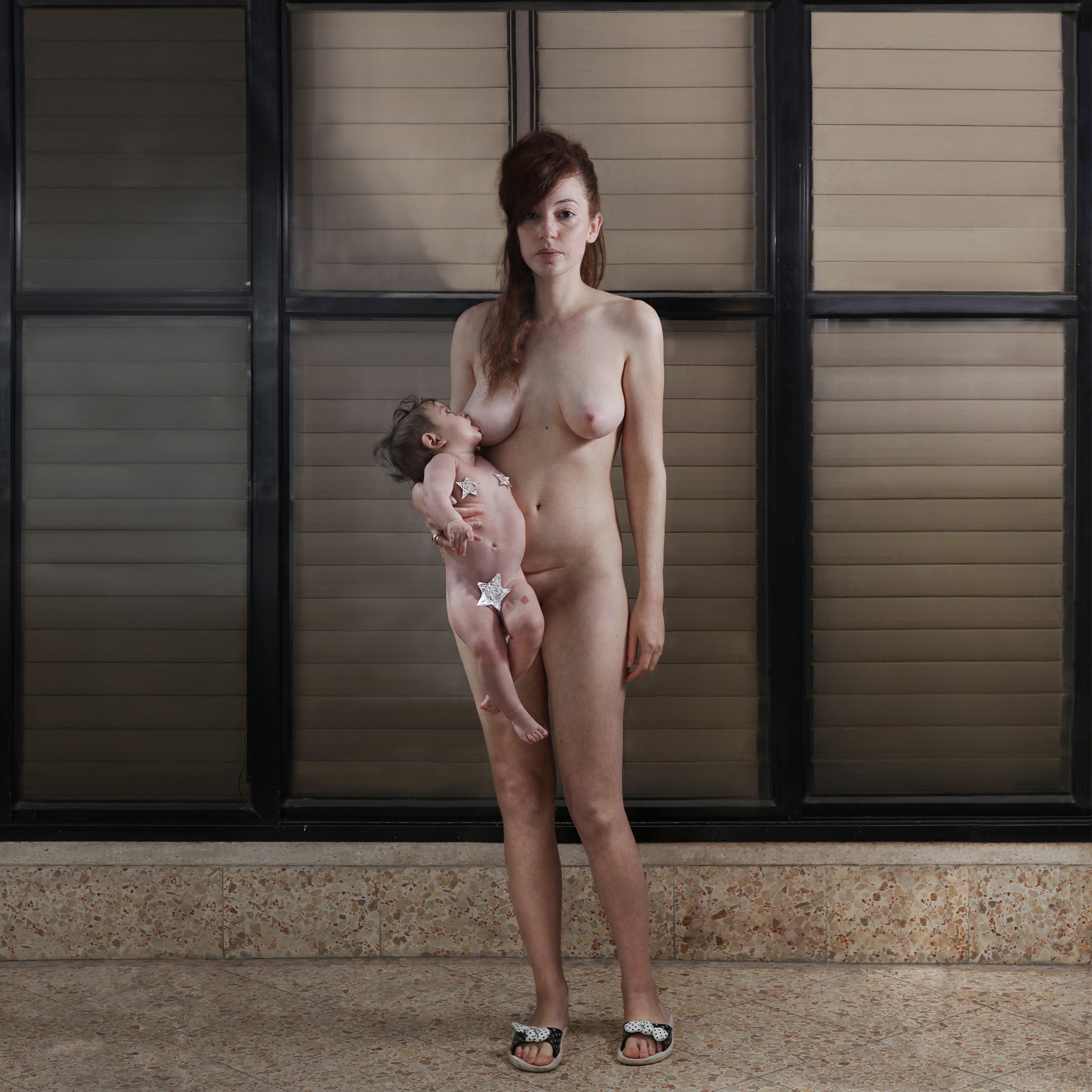
“Of course raising children is a lot of hard work, but I don’t see why it’s supposed to be so virtuous to do work that you created for yourself out of purely your own self-interest. It’s like someone who digs a big hole in the middle of a busy intersection then starts filling it up again, and proclaims: filling up this hole is the most important thing in the world I could be doing right now.”
—Sheila Heti, Motherhood
I’m in a state of anxiety. This week it’s my baby’s first birthday. There’s an inordinate amount of pressure about how you should celebrate, but the kid has no real friends, she doesn’t eat sugar, and she is a liability around her great-grandma since her glasses are merely an attractive and festive decoration for the hands of this baby terrorist.
Who is the first birthday party really for anyway? It seems that all first birthdays come down to one thing: the iconic photograph for the family album. The one the child, when slightly older, will point at and say (very Lacan), “that’s me”. No one remembers their first birthday. It is the simulacrum, the image of the birthday, that becomes part of a staged personal narrative in which our family members are complicit; an archive of monumental moments we treasure close to our chests.
“It seems that all first birthdays come down to one thing: the iconic photograph for the family album”
In my own first birthday photo, WhatsApped to me by my mum this week, a table is laden with eighties party food. The pièce de resistance is a hedgehog-shaped cake in the centre, chocolate buttons for spikes, a solitary candle stuck in its middle. I’m wearing a dress with a red ribbon and am wriggling in the arms of various aunts and uncles. Happy memories seep in through the old film, because this event, even if staged, like the photographs, is a conscious effort to create a narrative, to shape life in a positive way with warmth, love and culinary accomplishments. Good parenting
, like good art, creates a safe place to share with others. It’s an attempt to create some kind of beautiful form or idea of what it means to be human, from whatever we’re given.
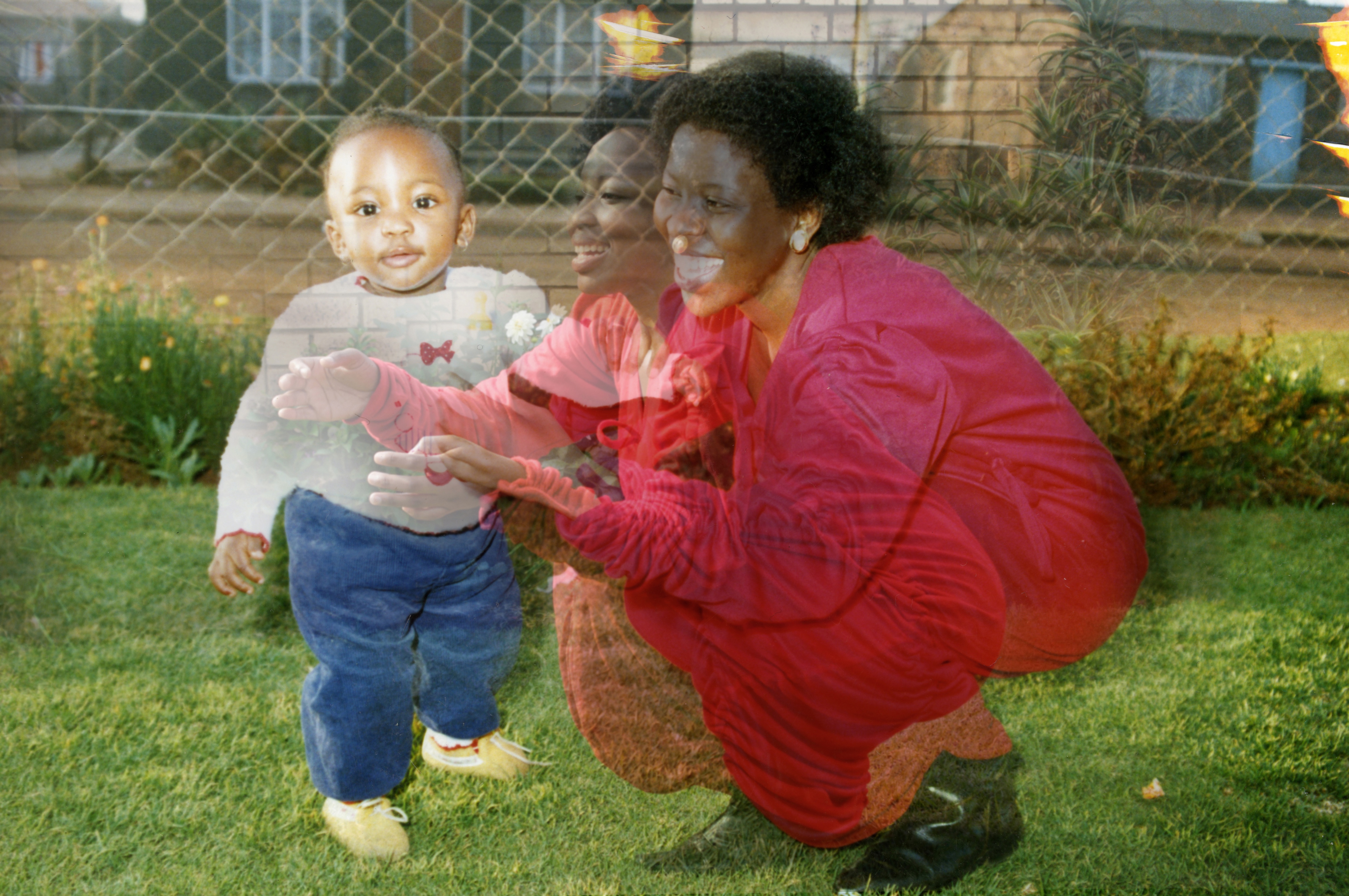
I have only been a parent for 365 days. I’m quite sure I have made at least 365 mistakes, probably more. Just recently, trying to write an email while my baby was playing naked on the floor, I suddenly became aware of her movements, hands rapidly moving back and forth over the floor with the gusto of an action painter. This was not an avant-garde performance I was witnessing, but her rubbing her own shit into the floor. Rest assured, thinking that going nappy-free in order for your child to air their ass is a good idea, is just one in a long line of mistakes. In order to survive the first year as a mother, I have had to learn to adapt. Not in the millennial “Yah, I lived in Paris for six months, then I was house-sitting in Peckham” kind of way, but with every inch of my body, my mind and soul.
“This was not an avant-garde performance I was witnessing, but her rubbing her own shit into the floor”
Being a mother is simultaneously the most exciting and the most mundane thing I’ve done. There have been moments of anxiety, plenty of bumped heads, fever and sickness, and six teeth growing through. For a whole month after she was born I held my daughter who wouldn’t be put down, even when asleep. I have slept with her next to me for 365 nights. I’ve carried her up hills in forty degree heat and pushed her down others in the snow. She has been attached to my boob, at least five times a day, for an entire year.
There is a brilliant series of photographs by Yaeli Gabriely, an artist who first gave birth in her twenties and who now has three young children. At a glance, the image looks like a regular mother and daughter portrait. Until you look closer, and realize the baby’s small body is morphed, warped, falling away into pixels. It isn’t a sunny series on motherhood, it is stark and cold; pale and fleshly. Gabriely’s photos don’t depict a space that ever existed; by stitching together different parts of a panorama of pictures, what we’re looking at is the photographic space, and in it, a lonely union of bodies. We cannot reach them. It describes everything about the ambivalent experience of early motherhood.

A friend who doesn’t have children recently told me how annoying it is when his co-workers expect to leave at 3pm to pick their sprogs up from school. “I don’t have children, so I have to work longer? You chose it!” For once, I found myself quite stumped. All I could stutter feebly was, “Well, you’re a smoker. You get more breaks too.” The thing is, his logic is totally right. But there is also the very real, feminist proposition of flexible working, which would mean we are all allowed to come and go when we like, if we get the job done.
When I read Sheila Heti‘s much-hyped book Motherhood earlier this year, as a new mother, I felt similarly flummoxed. Like everything else, motherhood is not binary, and it is not always a choice. Even when it is a choice, it is not as if you fully know what you are choosing. It is not about which is more virtuous, or who puts in more hours. We are all in this together, hurling what we can at life, hoping for the best and for better. I am raising a child, alongside my friends who don’t have children; some of my friends are deciding on sperm donors; others are undergoing IVF; some friends gave birth at twenty and at forty; some friends’ mothers have died and some have already raised their own siblings; one friend is raising another person’s biological baby, her nipples brusied from comfort feeding. They are all mothers. Bob Ross is a mother. RuPaul is definitely a #Mom. Motherhood means embracing and nurturing. Mothers are often depicted—reinforced in a disappointing way in Heti’s book—as sanctimonious, didactic, cis-women who suffer and think they know it all. That image is divisive and it needs to be challenged. What I have learnt in my first year as a mother, in the conventional sense, is that motherhood can take so many forms.
Right, I’m off to fill in that hole I dug earlier.
